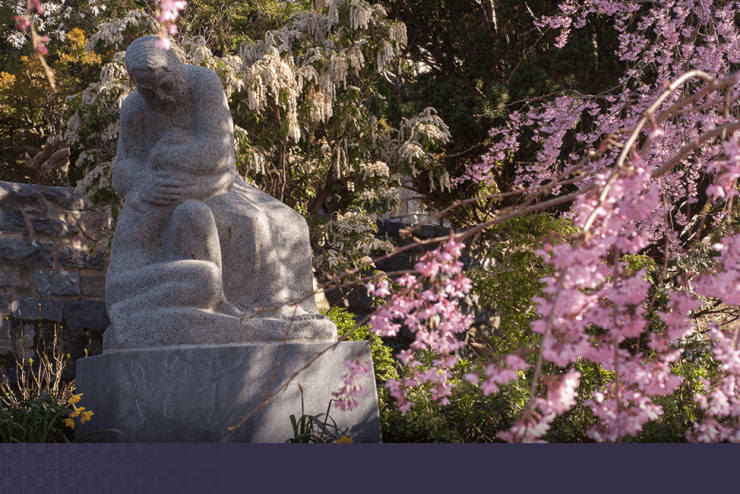The Rev. Canon Dana Colley Corsello

John 4:43-54
When the two days were over, he went from that place to Galilee (for Jesus himself had testified that a prophet has no honour in the prophet’s own country). When he came to Galilee, the Galileans welcomed him, since they had seen all that he had done in Jerusalem at the festival; for they too had gone to the festival.
Then he came again to Cana in Galilee where he had changed the water into wine. Now there was a royal official whose son lay ill in Capernaum. When he heard that Jesus had come from Judea to Galilee, he went and begged him to come down and heal his son, for he was at the point of death. Then Jesus said to him, ‘Unless you see signs and wonders you will not believe.’ The official said to him, ‘Sir, come down before my little boy dies.’ Jesus said to him, ‘Go; your son will live.’ The man believed the word that Jesus spoke to him and started on his way. As he was going down, his slaves met him and told him that his child was alive. So he asked them the hour when he began to recover, and they said to him, ‘Yesterday at one in the afternoon the fever left him.’ The father realized that this was the hour when Jesus had said to him, ‘Your son will live.’ So he himself believed, along with his whole household. Now this was the second sign that Jesus did after coming from Judea to Galilee.
In this scene from John’s Gospel one can easily imagine the desperation this father felt for his dying child. Did he believe Jesus to be the Son of God at the moment he begged for his intervention? And does this matter? Perhaps he was of two minds, and thought, Couldn’t hurt to ask, could it?
I know something of this father’s despondence. In 1998 my older brother was paralyzed in a catastrophic motorcycle accident. He lived in Indianapolis, then; I was in New York City. On one of my trips to visit him in those early weeks, I got word while waiting for my flight at LaGuardia that his kidneys were failing. I remember vividly the shaking, the tears, the feeling of helplessness. In my desperation I asked the gentleman working the newsstand to pray for my brother. He was surprised by my request, but said he would.
Most of us are not yet at a place of desperation. Most of us haven’t fallen sick, or lost a loved one to the coronavirus. Not yet. But we are, all of us, in a limbo. We are physically apart, but united by the unprecedented uncertainty of this moment, and the awareness of our own fragility that this uncertainty has laid bare. What will become of us? Our health? Our livelihoods? What’s next? What, and whom, do we believe at a time such as this?
Unless you see signs and wonders you will not believe…
The virus is invisible to our eyes. Then again, so is faith, and everything faith points to. We are called now, more than ever, to stay true to what we know is real, if invisible, for “we walk by faith, not by sight” (2 Cor. 5:7). We begin our long walk home to Capernaum, not knowing what will become of us, or how the story will turn out.
Faithfully,
Dana
Those who carry pianos
to the tenth floor wardrobes and coffins
an old man with a bundle of wood limps beyond the horizon
a woman with a hump of nettles
a madwoman pushing a pram
full of vodka bottles
they will all be lifted
like a gull’s feather like a dry leaf
like an eggshell a scrap of newspaper
Blessed are those who carry
for they shall be lifted.
Those Who Carry by Anna Kamienska (1920–1986)